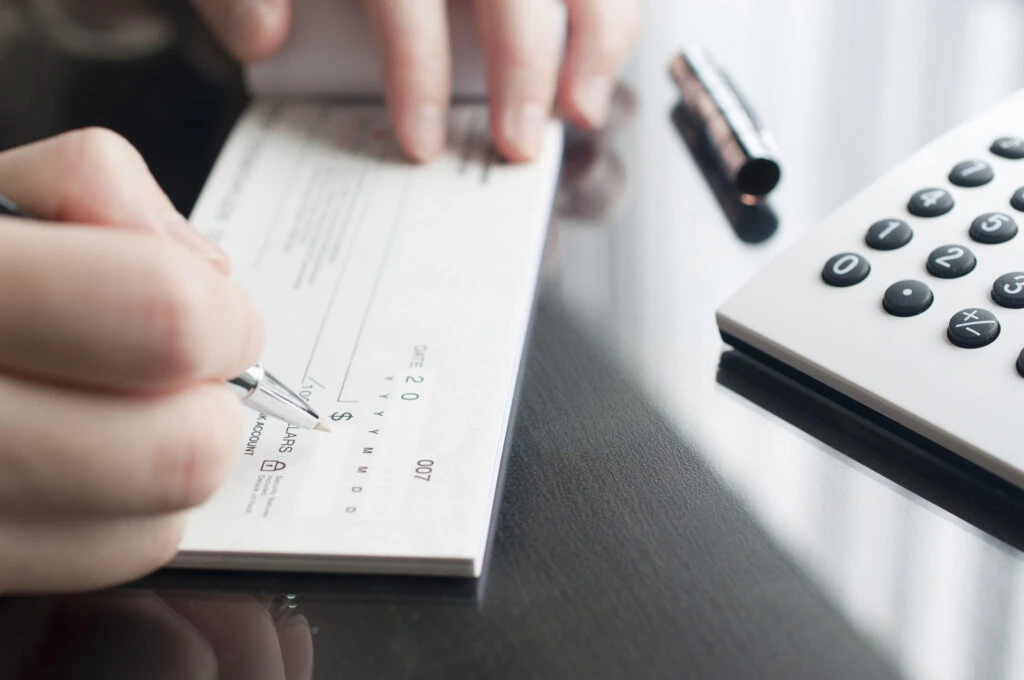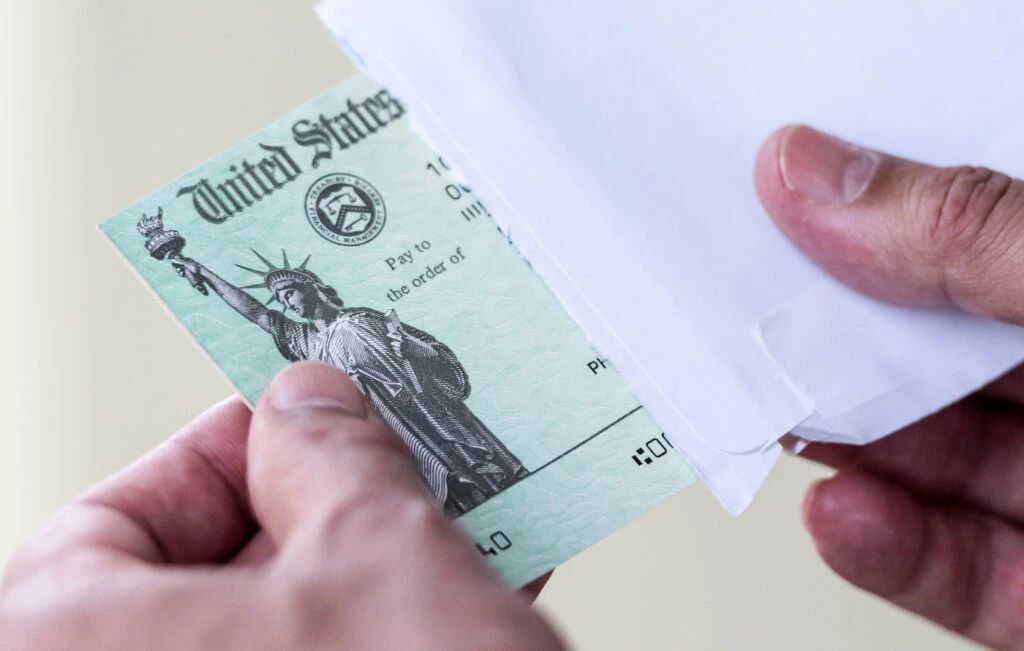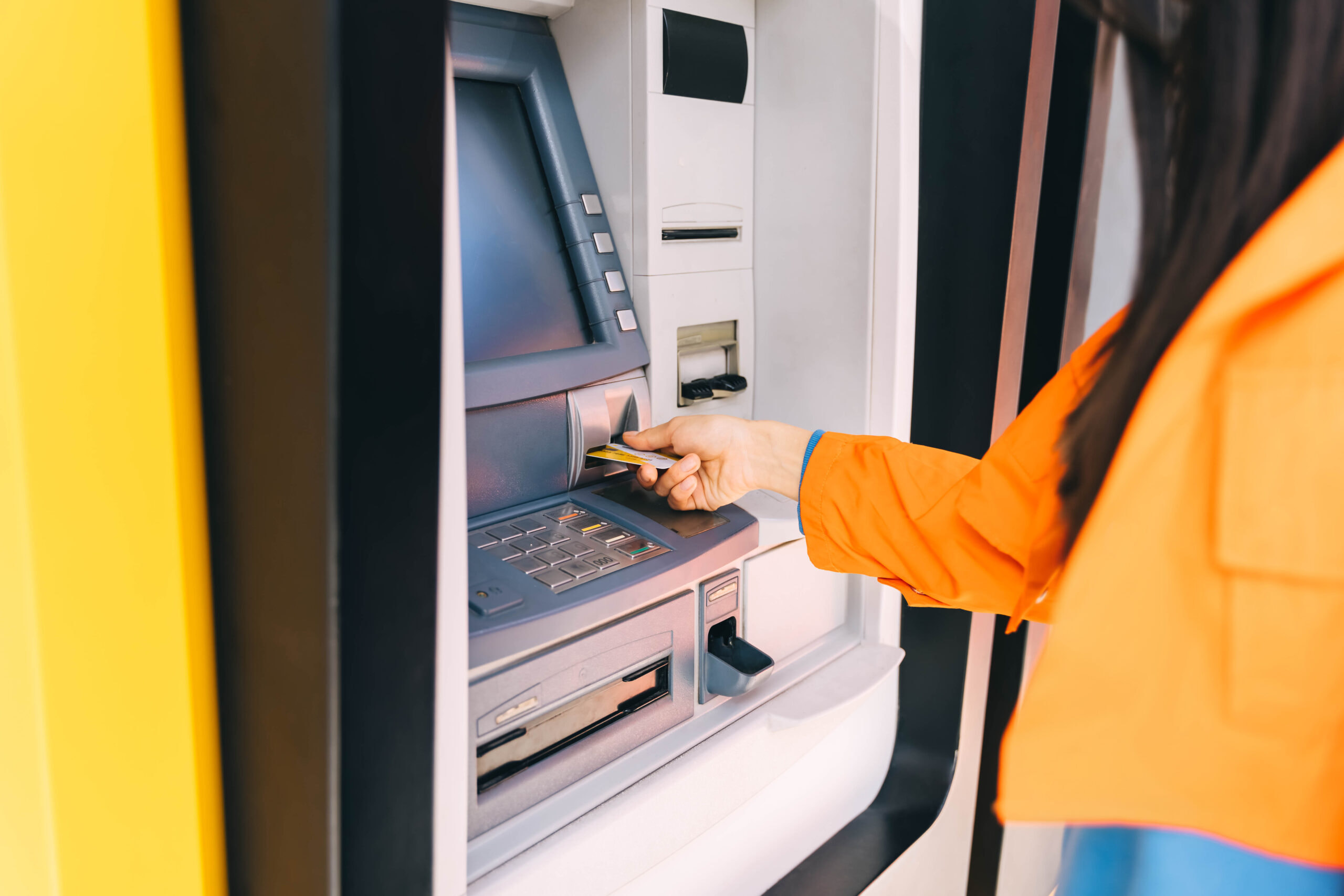Even with more financial payments happening digitally, there are many reasons you may receive a check these days. You could receive one for a birthday gift, as a payment for goods, or from your employer as wages. But did you know that checks aren't good forever?
If you don't deposit it in a timely manner, you could lose the money. Read on to learn how to deposit checks easily, when they expire, and what to do if you have an old check that needs cashing. These tips can be used even for those without a checking or savings account.
Do checks expire?
The simple answer is: yes. Checks do expire. The rules vary depending on the type of check and who issues it.
You can cash or deposit a check for up to six months for some checks and up to a year or more for others. Once expired, the check will be considered "stale," and banks no longer have to accept it.
Can I cash an expired check?
If you take an expired check to a bank or try to cash it some other way, it's hard to know what will happen. The bank may do one of the following:
- Refuse the check. This is more likely if there's an expiration date with "valid for 180" days or similar printed on the check. Since a bank isn't legally required to cash the check, and they assume some risk by giving you money for it, they may just turn you away.
- Accept the check. Some banks may deposit a stale check, especially for their own customers. However, don't expect to get cash for it right away. The bank will likely hold it to be sure the issuer has sufficient funds to cover the check amount first.
- Charge a returned check fee. If you deposit the check successfully, that may not be all there is to the story. If the issuer doesn't have enough money to cover the check, the check will bounce. Then, the bank will take the money from your account and charge you a "deposit item returned" fee. It also puts you at risk of an overdraft if you've gone ahead and tried to spend the money, which could come with even more fees.
Another thing to know is that the issuer may notice you haven't cashed the check yet. If it's truly expired (after six months for personal checks), the issuer may be worried that it was lost or stolen. They could contact their bank and have a stop payment order put on the check to prevent anyone from trying to cash it. If this happens, you won't be able to cash the check.
Expiration dates by type of check
Have you ever wondered, "How long are checks good for?" The clock starts ticking from the date the check is written, and since checks all have a date on them, this is what you need to pay attention to.
Here are some common check types and how long you have before they may expire:

Personal checks
Personal checks are good for 180 days (six months) from the date written on the check. Some banks may accept them after this time, but they don't have to. Checks may also have a pre-printed expiration date, such as "void after 90 days," which may discourage a bank from accepting them after this time.
Business checks
Checks written by a company to another company or person are considered business checks and are drawn on a business account. These checks typically have the same rules as personal checks, but are more likely to have a "void after" line on them.

Government checks
Checks written by the U.S. Treasury may include tax refunds or Social Security payments. These checks expire one year after the issue date. However, state and local checks can have different rules, which vary by location.
Cashier's checks and certified checks
Cashier's checks may have an expiration date printed on them to inform you of how long you have to deposit them. This timeline ranges from a few months to a year. If not cashed on time, the funds can be turned over to the state as part of an unclaimed property program.
Certified checks won't always have an expiration date, but they do get turned over to unclaimed property if not deposited in a timely manner.
You can check for unclaimed property, like certified checks, at the official website of the National Association of Unclaimed Property Administrators. This database lists property from all 50 states, along with how to claim yours.
Traveler's checks and money orders
Traveler's checks are useful tools for going on trips abroad, as the value doesn't expire as long as the issuing bank is still around. Money orders work the same way and can be held indefinitely. Just be sure to check the terms and conditions. There may be additional fees taken from the value of the money order if it's not cashed quickly.
What to do with an expired check
If you discover an old check that you forgot to deposit, don't panic. There's likely a resolution to help you get your money.
For expired personal checks or business checks, contact the issuer directly and ask if they can write a new one. They may ask you to return the original and pay a stop payment fee to cover their cost of canceling the first one.
Government checks, like those for tax refunds or Social Security payments, must be requested from the government office that issued them. The process varies by department, but you may be able to make the request online for quicker resolution.
How to deposit or cash a check quickly
Most people want to get their money right away, so depositing checks quickly makes sense for their budget and lifestyle. Also, it's far less risky to deposit a check as soon as you get it, as it prevents you from losing it or forgetting it completely.
You have several options for turning that check into cash in hand.
Deposit to an existing bank account
You have the most choices available if you have a checking or savings account. You can:
- Use an ATM to make a deposit.
- Take a photo with your mobile app and deposit it virtually. This may be the best or only option if your bank is an online-only or neobank.
- Take the check to your local bank and deposit it or cash it at the counter. (Note that there may be limits on how much cash you can get in hand, depending on your bank's rules and how much you have in your account.)
Cash it at the issuing bank
Some banks don't require you to have an account with them to cash a check, as long as the check was written by one of their customers. For example, if your employer paid you with a check from Wells Fargo, you should be able to cash it at any Wells Fargo location.
Banks may charge a fee for this service and put limits on how large a check they will cash. Check with the specific bank location for hours, conditions, and costs associated with cashing a check as a non-customer.
Deposit or cash it at a participating retailer
If you don't have a bank account, you can often cash the check at a participating customer service counter at a retailer that offers this service. For example, Walmart cashes payroll, government checks, tax refunds, cashiers' checks, insurance settlements, 401(k) checks, Western Union, and MoneyGram money orders. They may also cash two-party checks in some locations. Bring your government-issued photo ID to make the process easier.
There are usually limits on how large of a check you can cash this way, and the retailer charges fees.
Deposit to a prepaid debit card
If you don't want to carry cash around, you may choose to deposit your check online to a prepaid debit card like Netspend. You don't need a separate bank account to get started. If you're new to Netspend, you'll be asked a few questions to help verify your identity1 and get your account opened.
Once your Netspend account is active, just choose "Mobile Check Load2" from the app menu and follow the instructions to photograph your check and load it to your card. Your money may be available in minutes, depending on the check and options you select.
Avoid problems with these check deposit tips
Dealing with stale checks can be a headache, and it may result in you not getting your money from the issuer. To prevent this from happening, deposit your check, using the app from your bank or reloadable Visa card account, like through the Netspend app.
With more digital options available, you should be able to handle depositing your check after getting it, whether in the parking lot of your workplace or down the road from your mailbox. After a quick snap with your mobile phone camera, you'll have your money ready to use. And you won't have to worry about losing the check or letting it go stale ever again.



